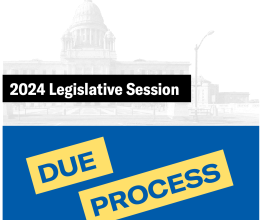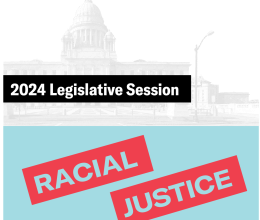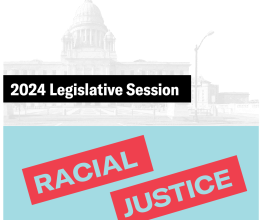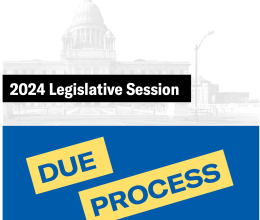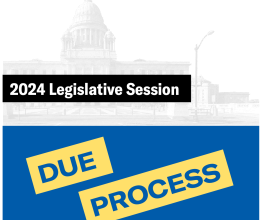The ACLU of Rhode Island, together with the National ACLU and the National Congress of American Indians, today filed a "friend of the court" brief in the pending appeal between the state of Rhode Island and the Narragansett Indian Tribe over the highly publicized 2003 state police raid of the Tribe's smoke shop. The brief, filed in the U.S. Court of Appeals for the First Circuit in Boston, argues that "by executing a search warrant against the Tribe, arresting Tribal officials, and confiscating tribal documents and other property," the state violated the Tribe's "sovereign authority over its territory."
In May, a panel of the appellate court ruled that the State could require the Narragansetts to collect taxes on cigarette sales, but that the Tribe's sovereignty was violated when state troopers raided the smoke shop and arrested tribal leaders. The entire court has agreed to review that ruling. Although the state has called the panel's ruling "contradictory," the ACLU/NCAI brief explains otherwise.
Noting that the "federal policy of leaving tribes free from state jurisdiction and control is deeply rooted in the Nation’s history," the "friend of the court" brief emphasizes that "inherent tribal sovereignty and federal protection over Indian tribes … prohibit the state from entering the Narragansett Indian Reservation to enforce state cigarette tax laws against the Tribe." Instead, the brief notes, the state possesses alternatives for collecting the tax, including entering into a cooperative tax agreement with the Tribe "to adopt a mutually satisfactory regime for collecting its cigarette tax." Numerous such agreements have been entered into by other tribes and states and, the brief concludes, "tribal sovereignty and the substantial federal interests protecting it cannot be abrogated merely because a state chooses not to avail itself of existing recognized mechanisms for tax collections."
R.I. ACLU executive director Steven Brown said today: "This case raises issues of enormous consequence for Indian tribes. We are hopeful that the court will agree that the State's heavy-handed smoke shop raid was incompatible with long-standing principles of tribal sovereignty."
The brief was prepared by attorneys for the Nordhaus Law Firm, based in New Mexico and Washington D.C., which specializes in Indian law.

